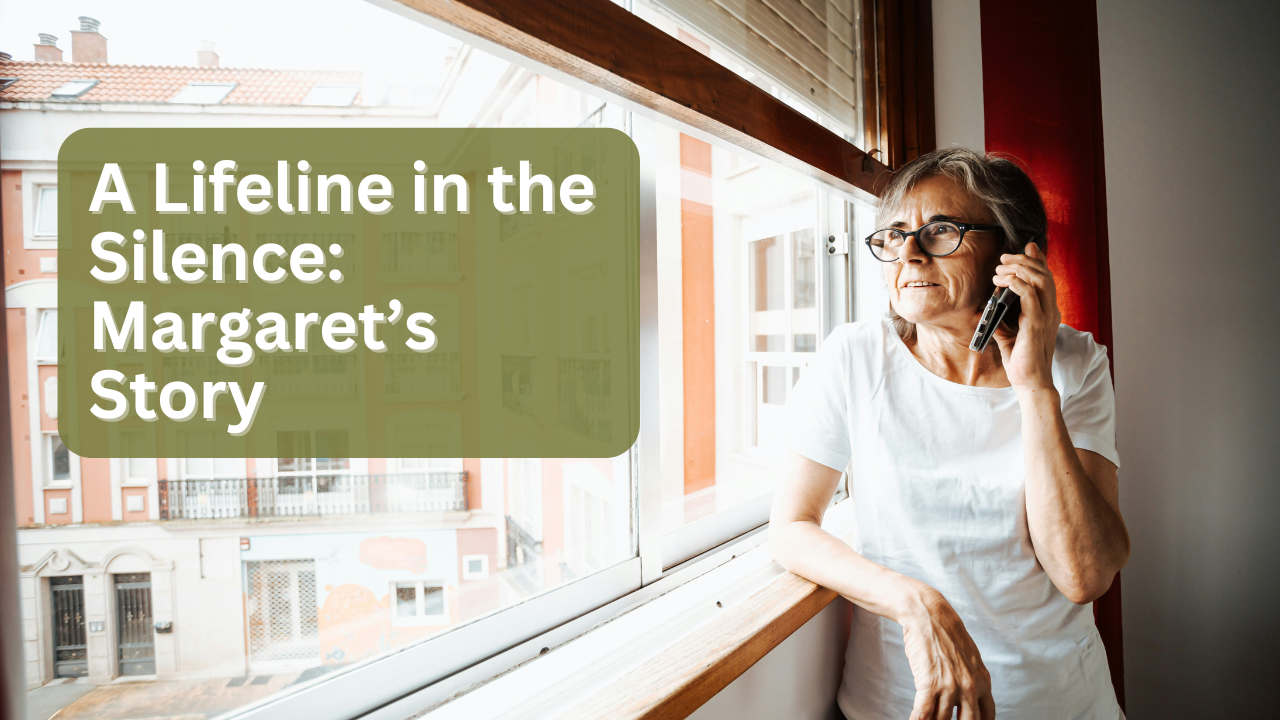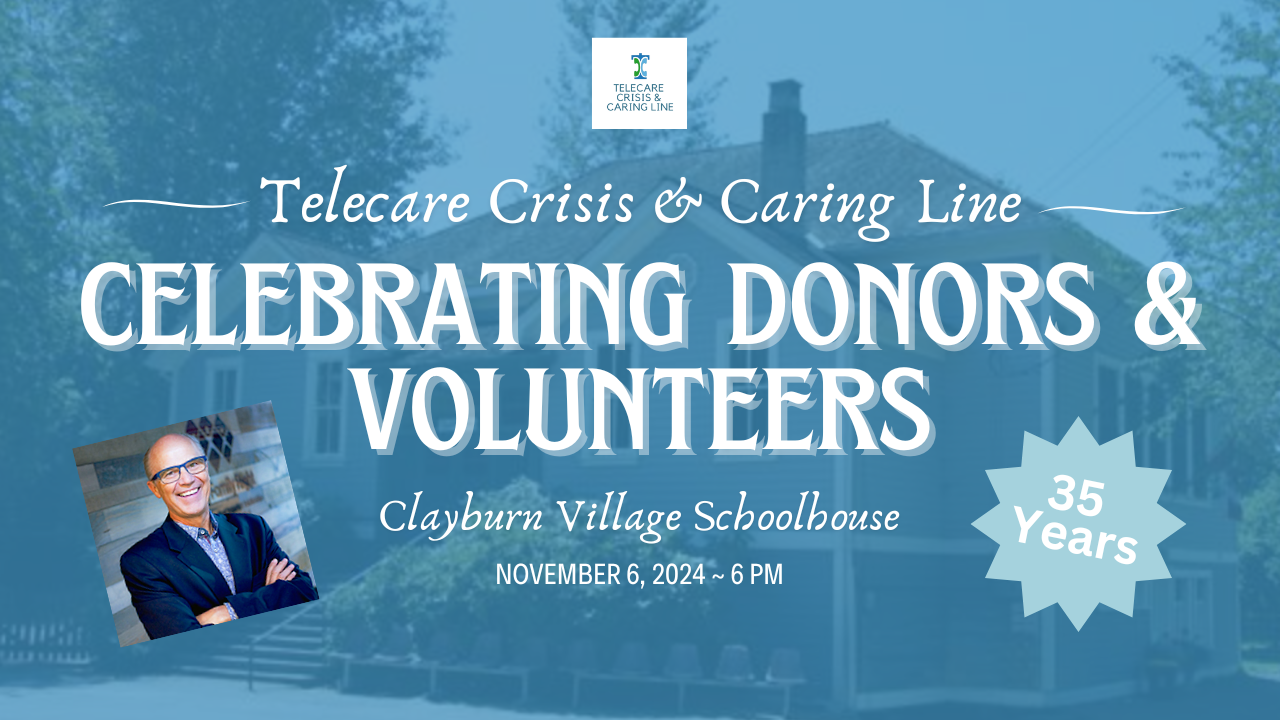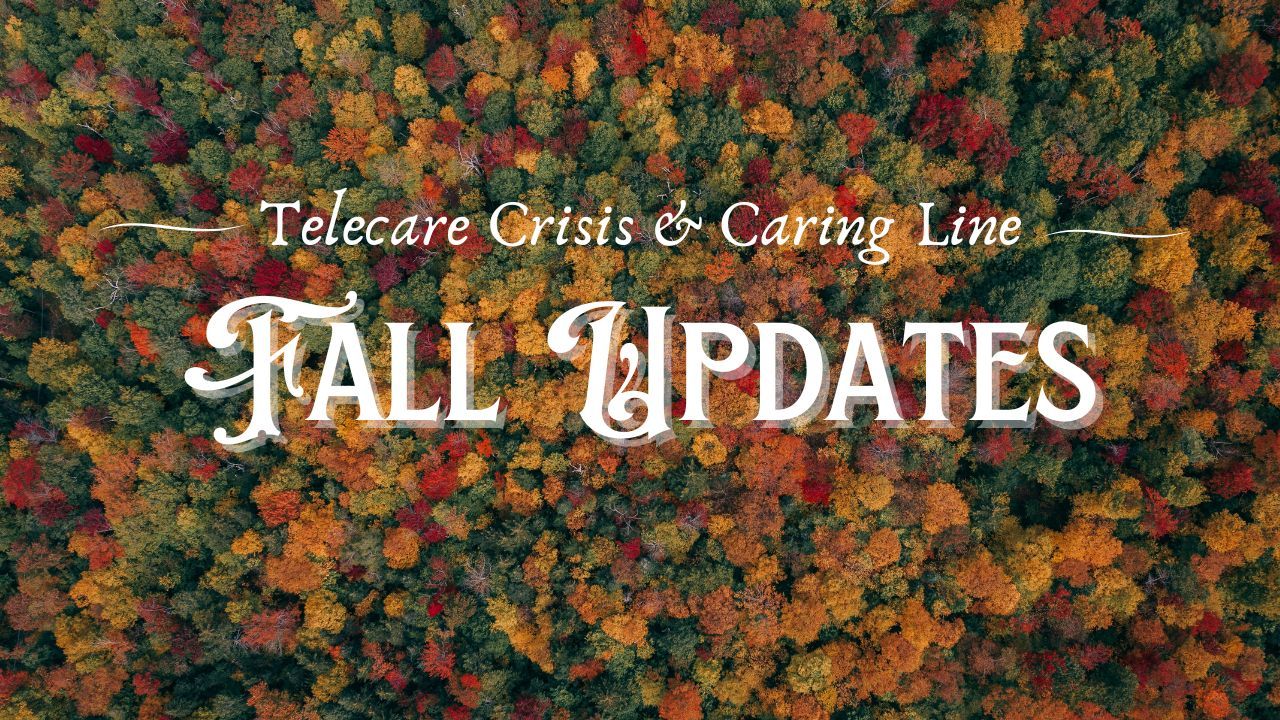Volunteering
Volunteering was not something new for Hilda. Throughout their marriage she and Al had regularly helped out for various church events, fundraisers, and congregational dinners. When their two sons were young they had been quick to lend a hand with the school fairs, and later had started to care for their small grand daughter; an afternoon a week. Hilda liked to help and to make herself useful, but the type of volunteering now suggested on the poster left her wondering if she was taking on too much. Could she really be someone who could respond to people who called on a crisis line? It was a frightening, yet compelling thought.
Relating and Connecting
During the stressful couple of years when her husband was battling cancer, Hilda had witnessed first hand the agony and loneliness of suffering. When she accompanied her husband for tests or treatments, she had spent many hours sitting in waiting rooms. Often she found herself listening to other patients or their families as they told her about the trials they were going through. She could relate. When they spoke about the sadness they felt, she could connect. Many times the same people sought her out and she would listen with empathy. The day came when Al’s condition worsened and Hilda needed to devote all of her time to caring for him.
After Al’s passing, Hilda had no free emotional space to give to anyone else. She was consumed by grief.
New Life
Slowly, Hilda created a new life without Al. She went out with her friends, learned new hobbies, went on a few vacations and started to volunteer at her church. Now she was considering becoming a volunteer on a crisis line. She felt she had worked through the grief and wanted to begin to share her time with the people who would call. When the date for the information evening came, Hilda sat with a number of other prospective volunteers in the basement room of a local church. After hearing about the training program from the organizers, and having her questions answered, Hilda signed up for the crisis line training. She enjoyed the weekly meetings presented on the different topics. She heard about active listening, caring confrontation, communication skills and many other topics. She felt somewhat awkward doing the role-plays with the other trainees, but after practice she began to feel more comfortable simulating how to respond to a caller.
Hilda has now been a crisis line volunteer for many years. She signs up for a regular shift and has responded to hundreds of calls. She knows what loss feels like, and she knows what compassion sounds like.
_ _ _ _ _
Written by Debbie Cazander
*Names have been changed to protect anonymity











